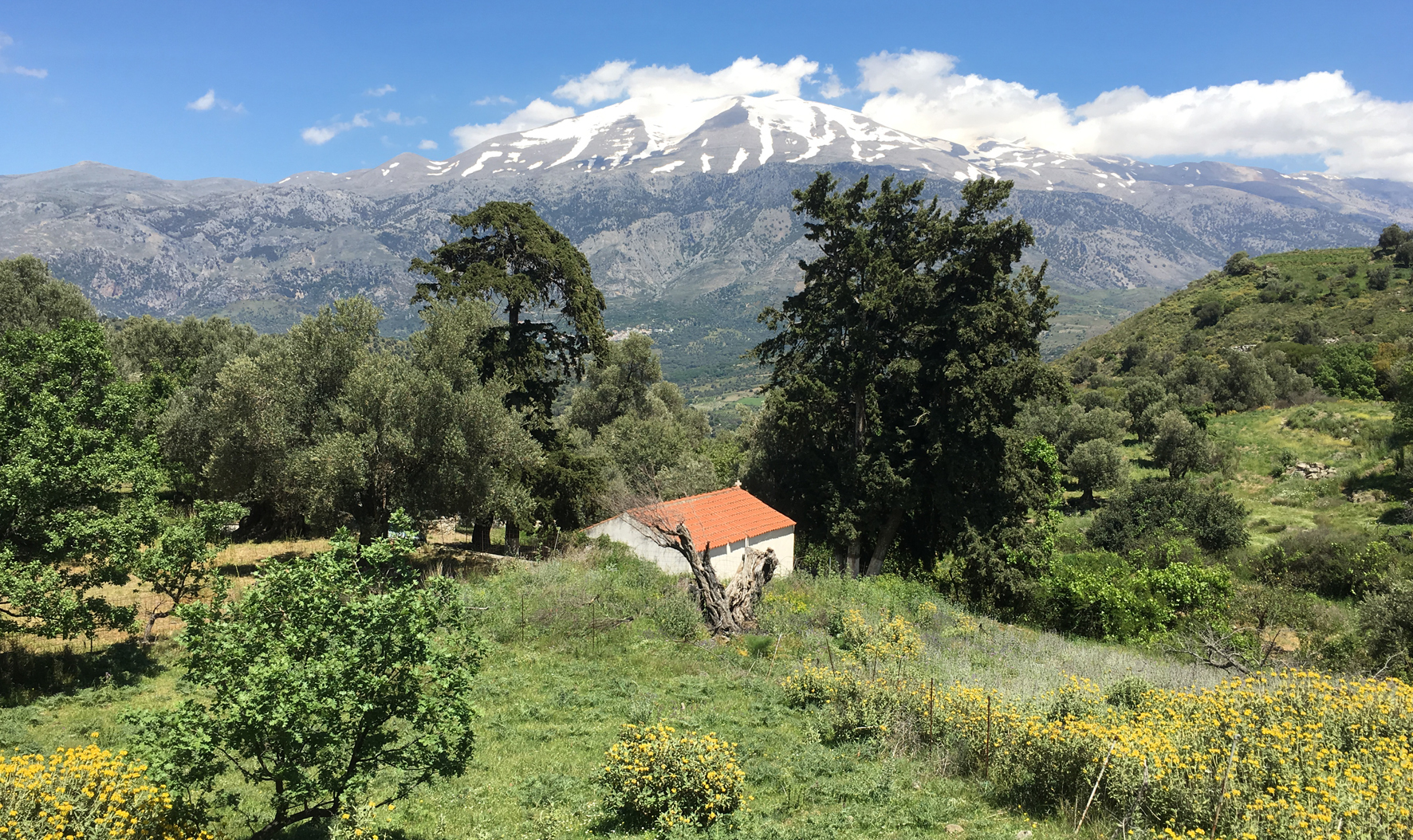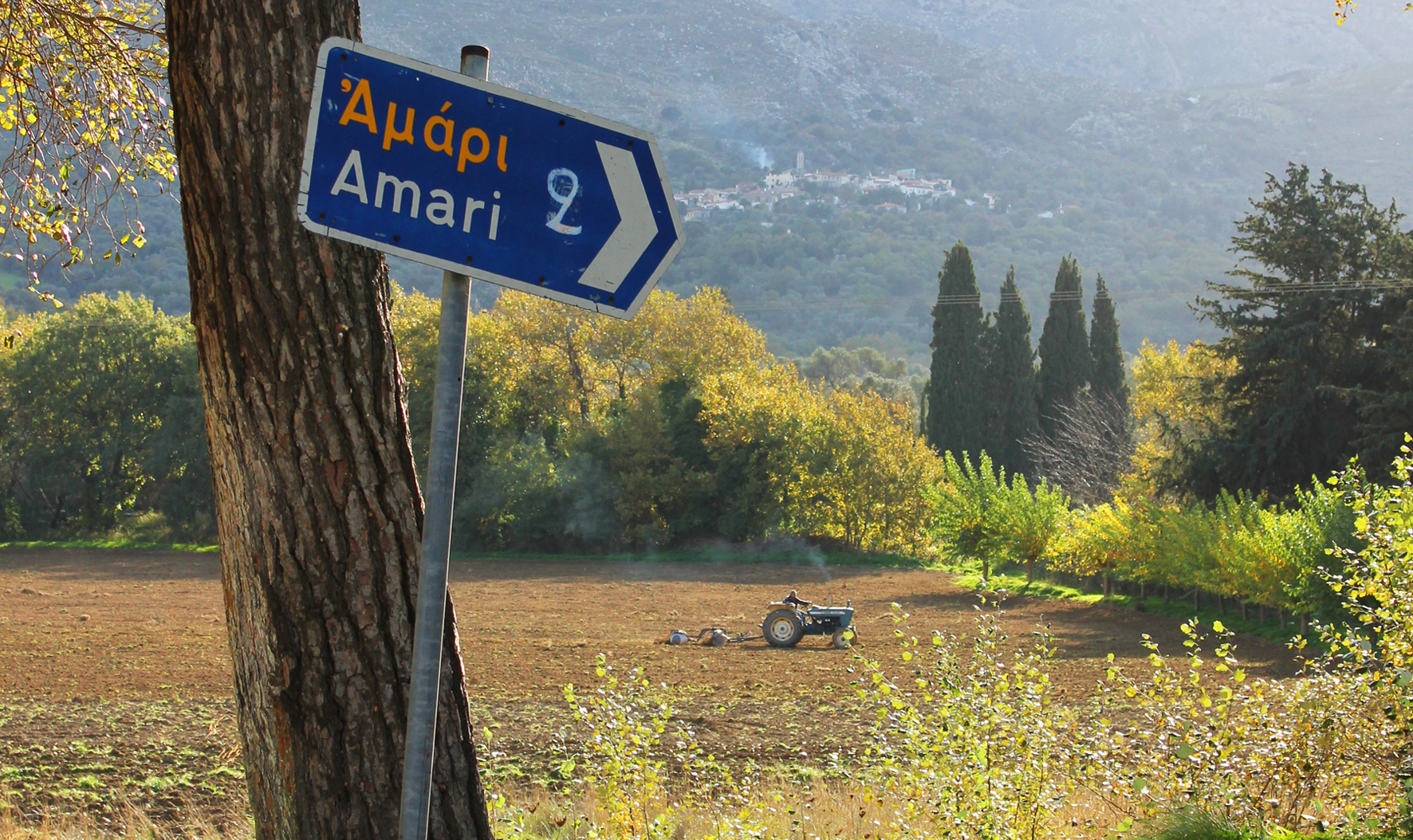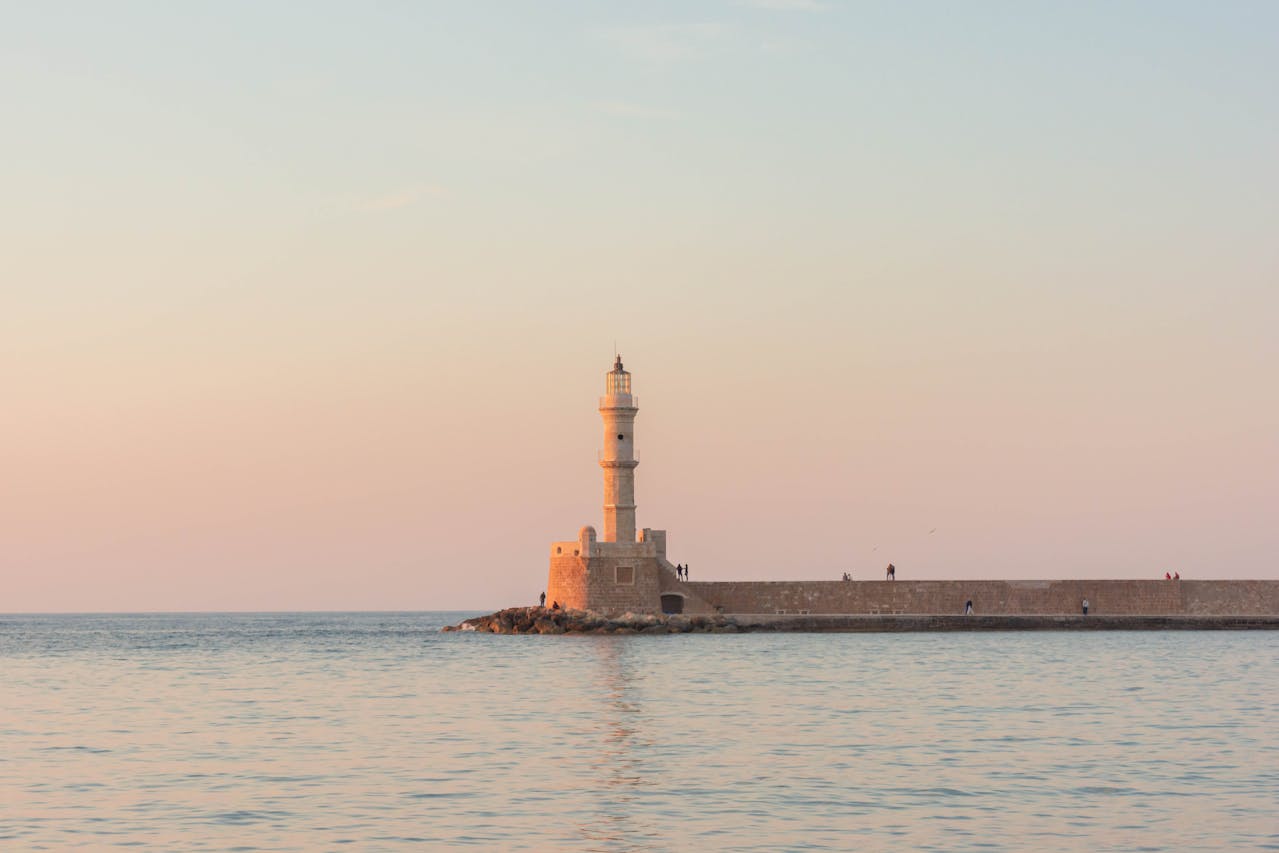Easter in Crete is a time of celebration, reflection, and, of course, food! The island's…

Savour spring in the Amari valley
With the mighty Psiloritis mountain range to the east and the Kedros moutains to the west, the Amari valley lies cradled 500 metres above sea level, an enchanting labyrinth of country lanes, connecting tiny hamlets largely untouched by tourism. Between the villages – shaded by cypresses, plane trees, oaks and pines – lies a patchwork of fields – of corn and cabbages, figs and apples, grapes and quinces, all nestling up to some of the oldest olive groves in Europe.
Set against the ever-changing colours of the mountains, this shangri-la just 45 minutes south-east of Rethymno, is Crete off-the-beaten-track, and perfect for a day’s exploration. Late spring is perhaps the best time of all to visit the Amari, with oleanders in the hedgerows splashing pink, and as the road from Rethymno snakes gently south. The summer’s sweet cherries are on their way – a speciality of the village of Gerakari.
Amid the glorious nature are some of Crete’s most precious Minoan and Byzantine churches, places of worship that convey the ancient spirituality of this blessed place. Beside them, Amariots today eke out livelihoods in much the same way as their ancestors, with a reliance on agriculture. The valley’s population has been in decline for decades. Reversing the trend is the challenge says former Amari mayor and teacher Adam Paradisanos.

“The Amari’s population is about 6000 today,” says Paradisanos, who has seen his own village, Agios Ioannis, shrink from 200 residents to just 50. “Forty years ago it was very different. It was three or four times this number. The young have left and the people who stayed are old”. Despite these problems, today a younger generation are regenerating the region, renovating ancient properties for the growing numbers of tourists wanting to visit the valley.
The Amari, with its stunning natural environment and historical sites is a wonderful place to visit to sample one of Crete’s most inspiring landscapes and cultures. For a glimpse of traditional rural Crete, the Amari is a place that beckons like no other.
Amari delights
The Amari valley is a large area, beginning just south of Patsos, a 30-minute drive from Rethymno, with its southerly edge just a few kilometres from the south coast. Hemmed in between the Psiloritis and Kedros mountain ranges, a car is a must to explore the area.
Most villages have kafenions and there are good tavernas along the the route from Rethymno. At Apostoli is the popular family taverna Dambounelis, while a little further on at Thronos, at the northern head of the valley, the Aravanes taverna always gives a warm welcome, with good food, and a shop that sells traditional local products. Agia Fotini has one of the few petrol stations in the northern end of the valley, along with a pharmacy and supermarkets. One of the Amari’s best kept culinary secrets is the delightful taverna Moschovolies at Meronas. Run by the Moschonas family Moschovolies offers great traditional Cretan favourites in a lovely setting.



